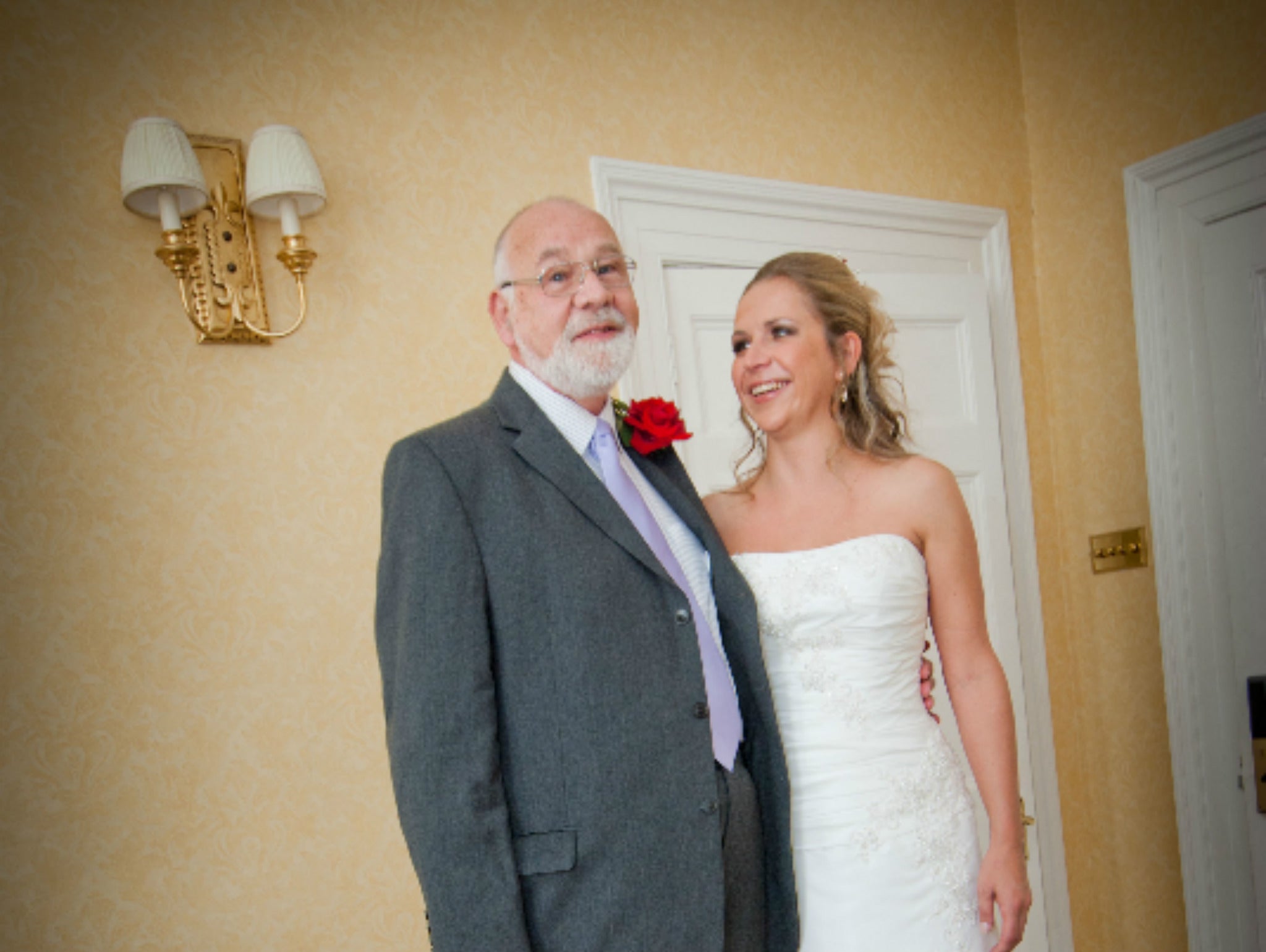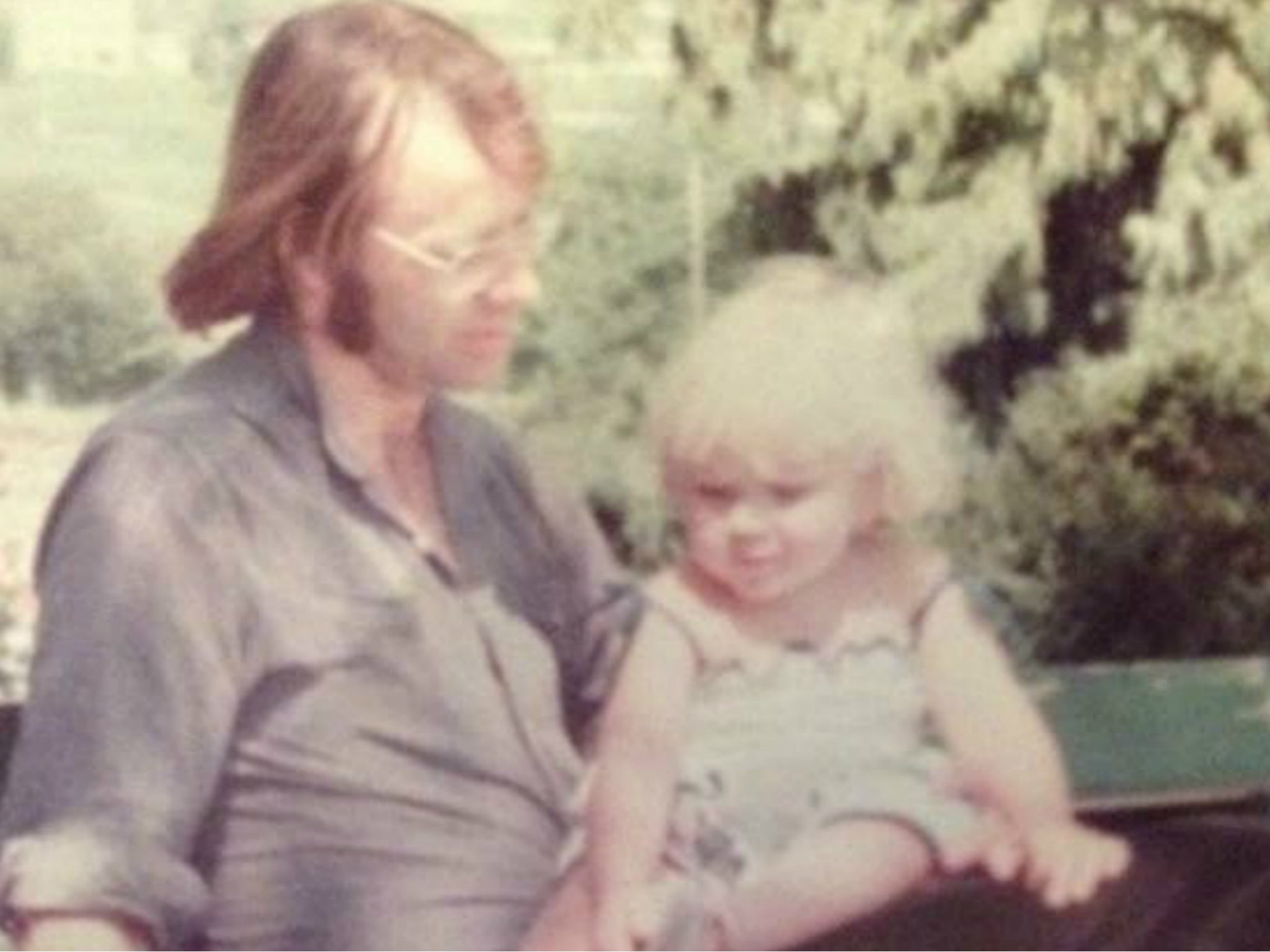Why grieving for a parent while trying to raise children is one of the most complex juggling acts in the world
You can't cry on the shoulder of a two-year-old who's just discovered ice cream, and adults rarely offer much more support

At least three times a day I feel like I'm going 100mph over a humpback bridge. My stomach lurches, my chest tightens, and the image of my father's face flashes before my eyes. A voice in my head, my voice, tells me “you'll never see him again”, and then the most overwhelming sense of loss, loneliness and despair grips me, and I wonder if I'll ever feel normal again.
Then my son or my daughter cries, and I remember I can't let myself feel like this. I can't get upset. I can't let them sense that I'm hurting. I'm their mother – I'm strong, I'm there to look after them. But ever since my father died in November aged 66, I've felt so completely lost.
I don't know what to do. It's nothing to my children if I'm cramping up inside like a heroin addict gone cold turkey. It's my job to look after them. But who will look after me? I can't bottle things up forever. But when can I let them out? Not until my children go to bed. And even then it must be silently, sobbing into my pillow for fear of waking them. Grieving for a parent while still trying to be a parent must be one of the most complex juggling acts in the world.

Most emotions you can share with others. But grief is just lonely. Losing someone is debilitating, often traumatic, and it feels impossible to explain how empty it leaves you. People try to empathise with your situation when you lose someone, but they soon get bored. "Aren't you over it yet?", or "he would have wanted you to carry on," are common lines trotted out over and over again.
Then you have the "at least you have the kids to keep you smiling." Well yes, that's true, I have the kids to keep me busy, to keep me sane, to keep me from wallowing in self-pity. But to keep me smiling? Smiling on the outside doesn't mean you're smiling on the inside. And when you're dealing with meltdown number five, lucky is the last thing you feel.
Parents of young children have a particularly hard task when they're grieving because while they are kept constantly busy, there's nobody to talk to. You can't cry on the shoulder of a two-year-old who's just discovered ice cream. And when you do get adult company it's as if anyone would rather talk about anything other than what's actually happening.
Just because someone is dead doesn't mean they don't exist. Just because they're not here anymore doesn't mean the person left behind doesn't want you to talk about them – to mention their name or share anecdotes and memories that keep their memory alive. I want to talk about my Dad, but the only person who will listen is more interested in mastering jumping down stairs.
Of course, I have my husband Jamie, but there's only so much he can do. Jamie was close to my dad, and allowed me to spend all my time with him in his last days by taking care of the kids. He's been really supportive, but it's difficult to find time to talk about anything meaningful when he's out working all day. By the time the kids are in bed I'm exhausted and just want to sleep myself. When you've been holding tears in all day the last thing you want to do is cry your eyes out to someone who's had a stressful day at work. I think that's why it feels so lonely sometimes, because even if people want to help there never seems the time to let them.
Right now, every day can seem like a challenge. Waking up to that same thought – he's dead – then remembering you have to get on with things. You can't wallow, you can't mope, you have to be mummy, you have to be strong.
When you catch your boy singing at night, nose pressed against the window, and he tells you “I'm singing to Grandad, he's up in the sky now,” you can't cry, or scream “he's not a bloody star, he's dead!”. You just have to choke back the tears and take some sort of comfort from the fact he still remembers him.
I miss my Dad. I miss him so much. Sometimes I think I'm losing the plot, refusing to accept the fact that he's gone. I see his face and I hear his voice. I lie awake going over his last few weeks alive.
But he's gone, and I know he has. I have to accept that. And I do – because of my children. I want them to feel secure, to see mummy as strong, to see mummy as unbreakable. I may feel broken, but I'll keep it together for them. And they will help in their own little way. Bit by bit, day by day. Because no, he wouldn't have wanted to see me like this and yes, I am feeling slightly better. Day by day. The hole that he left in my life is still there, but it's getting easier to live around.
Join our commenting forum
Join thought-provoking conversations, follow other Independent readers and see their replies
Comments
Bookmark popover
Removed from bookmarks